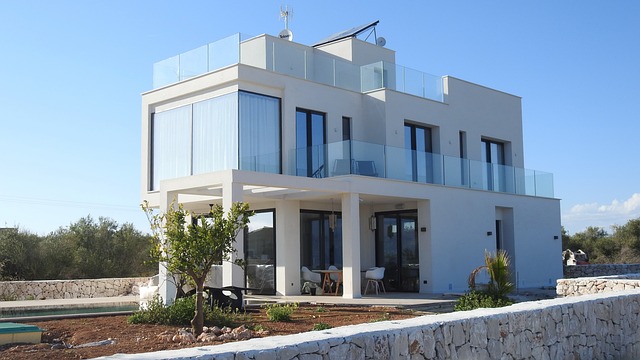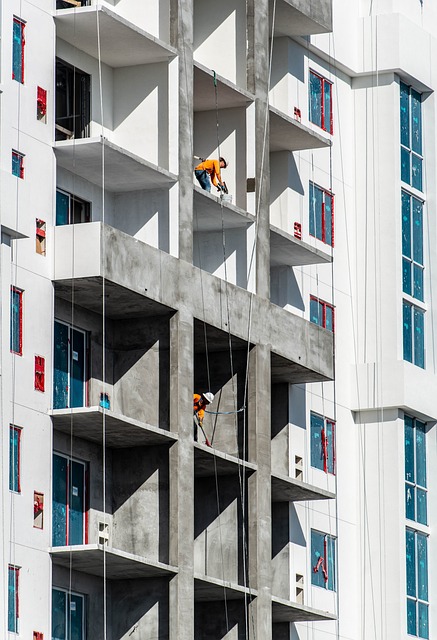In Singapore's real estate market, Executive Condominium (EC) loans offer a unique and attractive financing option for buyers seeking affordable resale ECs. With specific eligibility criteria focusing on financial stability and down payments, these loans…….
Category: Cheapest Resale Ec In Singapore
Introduction
In the vibrant and dynamic city-state of Singapore, the concept of an affordable resale Executive Condominium (EC) has emerged as a significant pillar in the nation’s housing landscape. This article delves into the intricacies of the cheapest resale EC in Singapore, its significance, and its role in addressing the housing needs of middle-income families. We will explore the economic, social, and policy factors that influence the resale EC market, the technological advancements shaping it, and the global impact of this unique segment within Singapore’s real estate sector.
Understanding Cheapest Resale EC in Singapore
An Executive Condominium (EC) is a hybrid housing model in Singapore, designed to provide an alternative option for couples who cannot afford a private condo but earn too much to qualify for public housing. Upon fulfilling certain criteria, including living there for five years, owners of an EC can sell their unit on the open market, making it resale-able. The “cheapest” aspect refers to the most affordable units available in the resale market, which are typically smaller, older, or located in less sought-after areas.
The historical context of ECs dates back to the early 1990s when they were introduced as a Housing and Development Board (HDB) flat upgrade path for eligible families. Over the years, ECs have evolved, offering a blend of private condo facilities and public housing affordability. Today, they serve as a critical stepping stone for upgrading to larger and more luxurious homes, making them a cornerstone in Singapore’s housing policy.
Global Impact and Trends
The global influence of resale ECs in Singapore reflects the country’s innovative approach to addressing urban living challenges. Internationally, the concept has garnered attention for its effectiveness in providing affordable housing without compromising on quality or amenities. This model has inspired similar initiatives in various cities around the world, where the balance between affordability and quality of life is a pressing concern.
Key trends shaping the trajectory of resale ECs include demographic shifts, changing family structures, and the increasing importance of sustainable living. The global economic landscape also plays a role, with factors such as interest rates, inflation, and immigration policies impacting demand and supply in the housing market.
Economic Considerations
The economic aspects of resale ECs are multifaceted. From a market dynamics perspective, resale ECs offer a cost-effective entry point into condominium living for middle-income families. Investment patterns in this sector are influenced by factors such as interest rate fluctuations, the resale price index, and the broader economic climate.
Resale ECs contribute significantly to Singapore’s economy by addressing housing shortages and stimulating construction and related industries. They also play a role in wealth accumulation for early investors, providing an opportunity for capital appreciation over time. The government’s policies, including subsidies and grants, further facilitate access to affordable housing, ensuring that the benefits of economic growth are shared equitably.
Technological Advancements
Technology has revolutionized the real estate sector, and resale ECs in Singapore have not been left behind. Innovations such as smart home systems, energy-efficient appliances, and sustainable building materials have made resale ECs more attractive and cost-effective over time. The integration of smart technology enhances living standards while also offering potential for increased property values.
Future technological advancements promise to further transform the resale EC landscape, with developments in artificial intelligence, virtual reality showflats, and blockchain-based transactions streamlining the buying and selling process. These innovations are poised to make resale ECs more efficient and user-friendly, ensuring their relevance in a rapidly evolving market.
Policy and Regulation
The regulatory framework governing resale ECs is robust and dynamic, with policies designed to protect the interests of homeowners while ensuring market stability. The Singapore government’s total debt servicing ratio (TDSR) framework, for instance, ensures that potential buyers are not over-leveraged. Additionally, the Minimum Occupation Period (MOP) policy requires owners to live in the EC for a specified period before it can be sold on the open market.
Legislative changes, such as the recent removal of the five-year MOP for second-time applicants, have also influenced the resale EC market. These policies are crucial in balancing the needs of first-time homeowners with the objectives of maintaining a stable and affordable housing market.
Challenges and Criticisms
Despite its success, the resale EC market faces challenges and criticisms. One major concern is the high demand leading to escalating prices, making it increasingly difficult for first-time homeowners to enter the market. Another issue is the environmental impact of building and maintaining these condominiums.
To address these challenges, the government and industry stakeholders can work together to implement measures such as enhancing land supply, promoting sustainable building practices, and providing financial assistance to eligible buyers. Additionally, encouraging the development of new towns with a mix of housing options can help meet the diverse needs of the population.
Case Studies: Affordable Housing Success Stories
Several case studies illustrate the success of resale ECs in providing affordable housing to Singaporeans. For instance, the Bukit Batok West EC project exemplifies how such developments can offer quality living at an affordable price point. The integration of amenities like schools, shopping centers, and public transport ensures that residents have access to essential services within walking distance, enhancing the appeal of resale ECs.
Global Perspectives on Resale ECs
Resale ECs in Singapore have garnered global attention for their role in addressing urban housing challenges. Cities around the world are exploring similar models to meet their own housing demands, with lessons learned from Singapore’s approach to affordable living without compromising quality or sustainability.
Conclusion
The resale EC market in Singapore is a testament to innovative policy-making and responsive governance. It offers a model for sustainable urban living that balances affordability, quality of life, and economic growth. As Singapore continues to evolve, the resale EC will likely remain a vital component of its housing strategy, adapting to new challenges and opportunities while providing a pathway to homeownership for middle-income families.
Future Outlook
Looking ahead, the resale EC market in Singapore is set to remain dynamic and influential, with ongoing developments in technology, policy, and global trends shaping its trajectory. The commitment to sustainable living, coupled with responsive regulatory frameworks, will ensure that resale ECs continue to meet the needs of a diverse and growing population, making them a beacon for affordable urban living around the world.
Bukit Batok’s EC Revolution: Unlocking Affordable Living in Singapore
Bukit Batok, Singapore's rapidly growing region, is renowned for its diverse and affordable real estate options, especially Executive Condominiums (ECs). The area boasts the cheapest resale ECs in Singapore, making it an attractive location for first-time…….
EC Eligibility: A Comprehensive Guide for Singaporeans – Unlocking Work Visas
In Singapore, the Employment Pass (EC) is a crucial permit for foreign professionals seeking employment and residency, with renewal options up to 4 years. The Cheapest Resale EC is an affordable entry point catering to executives and specialists in STEM fields…….
Unlocking Singapore’s Affordable Luxury: Guide to Cheapest Resale Executive Condos
Executive Condos (ECs) in Singapore offer affordable housing solutions for young professionals and families, with lower entry costs than private apartments. The cheapest resale ECs are highly sought-after due to government initiatives promoting home ownership……..
Cheap Executive Condos in Singapore: A Comprehensive Handover Guide
To find the cheapest resale Executive Condos (ECs) in Singapore, analyze market trends, utilize online resources like PropertyGuru and iProperty, and monitor new developments. Consider location and engage a real estate agent for hidden gems. The handover proce…….
Tampines EC: Singapore’s Cheapest Resale ECs & Future Projections
The market for resale Executive Condos (ECs) in Singapore is shifting towards affordability, with buyers increasingly seeking cost-effective housing options. The cheapest resale ECs, particularly in areas like Tampines, are highly sought-after due to their com…….
Unlocking Executive Condo Financing: Cheapest Resale Options & Strategies in Singapore
Executive Condos (ECs) in Singapore offer an attractive housing option with lower costs compared to regular condos, appealing to high-income professionals. These properties provide premium locations, modern designs, and facilities while bridging the gap betwee…….
Guide to EC Showflat Viewing: Secure Cheapest Resale EC in Singapore
EC Showflats, or Executive Condos, offer the cheapest resale options in Singapore with modern designs, high-quality finishes, and convenient amenities like gyms and pools. Ideal for those seeking affordable contemporary living, these units provide a blend of c…….
Top Executive Condos in Singapore: Unlocking Affordable Luxury Living
Singapore's Executive Condos (ECs) offer a unique blend of luxury and affordability for high-flying professionals. As the cheapest resale EC option, they feature modern designs, smart home tech, and convenient locations near business hubs. Growing demand…….
Uncovering Singapore’s Cheapest EC Resale Opportunities for 2023
Singapore's Executive Condos (ECs) are increasingly popular among first-time buyers and investors seeking affordable housing. With some of the cheapest resale ECs found in newer developments like Bukit Timah, Jurong East, and Serangoon, these areas offer…….









